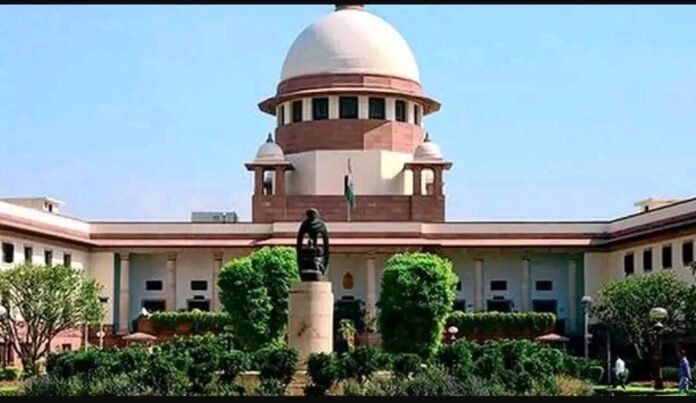New Delhi:
In a significant development, the Supreme Court of India has directed the Union Government to submit an affidavit within two weeks, providing justification for the recently enacted ‘services ordinance.’ The court’s directive came during a hearing on Monday, where concerns were raised regarding the legality and necessity of the ordinance.
The ‘services ordinance’ issued by the government has attracted scrutiny from various quarters, including legal experts and civil society organizations. The Supreme Court has taken cognizance of these concerns and has sought an explanation from the Centre.
The ordinance, which was promulgated by the government without parliamentary approval, has raised questions about its constitutional validity. Critics argue that such a significant legislative measure should have been debated and deliberated in the parliament, allowing for broader input and discussion.
While the exact details and provisions of the ‘services ordinance’ are yet to be fully disclosed, it is believed to have far-reaching implications for the services sector in the country. The Supreme Court’s directive to the government to provide a detailed affidavit aims to shed light on the intentions behind the ordinance and evaluate its constitutional soundness.
Legal experts opine that the court’s decision to seek justification for the ordinance indicates its commitment to upholding the principles of transparency, accountability, and the rule of law. By requesting the Centre to provide a thorough explanation, the Supreme Court aims to ensure that the government’s actions align with the constitutional framework.
The judiciary plays a crucial role in reviewing the executive’s decisions and scrutinizing the validity of laws and ordinances. This move by the Supreme Court highlights its role as a check and balance on the powers of the government, safeguarding the democratic principles enshrined in the Constitution.
The Centre now has two weeks to submit the requested affidavit, wherein it must provide a clear and comprehensive justification for the ‘services ordinance.’ The court’s subsequent review of the affidavit will determine whether the ordinance stands on solid legal grounds or if further action is warranted.
The outcome of this case is eagerly awaited, as it will not only determine the fate of the ‘services ordinance’ but also establish an important precedent regarding the process and legitimacy of issuing ordinances without parliamentary approval. It remains to be seen how the Centre will respond to the court’s directive and what arguments it will put forth to justify the ordinance.
In the coming weeks, legal experts, observers, and stakeholders will closely monitor the developments surrounding the ‘services ordinance’ case, as it has significant implications for the governance and legislative processes in the country. The Supreme Court’s engagement in this matter serves as a reminder of the judiciary’s critical role in upholding the principles of justice and ensuring the constitutional balance of power.

